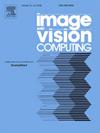通过基于深度学习的三个全卷积神经网络进行糖尿病视网膜病变数据扩增和血管分割
IF 4.2
3区 计算机科学
Q2 COMPUTER SCIENCE, ARTIFICIAL INTELLIGENCE
引用次数: 0
摘要
问题眼底成像用于早期诊断糖尿病视网膜病变、视网膜脱离和血管闭塞等最严重的疾病。然而,由于存在噪声、成像过程中背景与血管之间对比度低以及血管形态等原因,导致血管分割不确定。方法 在预处理后的灰度眼底图像上应用标准偏差为 σ1 的高斯滤波器,并与同一图像上类似应用的标准偏差为 σ2 的高斯滤波器相减。然后将得到的图像作为输入分别输入到三个全卷积神经网络中。高斯滤波器的偏差在去除高频细节(噪声)方面起着至关重要的作用,因此可以从视网膜眼底精细提取出血管,并去除潜在的伪影。结果数据集共包括 3832 张由 479 张眼底图像转换而来的增强图像。结果表明,所提出的方法在 DRIVE、CHASE 和实时临床数据集上分别达到了 96.50%、97.69% 和 95.78% 的准确率,表现非常出色。本文章由计算机程序翻译,如有差异,请以英文原文为准。
Diabetic retinopathy data augmentation and vessel segmentation through deep learning based three fully convolution neural networks
Problem
The eye fundus imaging is used for early diagnosis of most damaging concerns such as diabetic retinopathy, retinal detachments and vascular occlusions. However, the presence of noise, low contrast between background and vasculature during imaging, and vessel morphology lead to uncertain vessel segmentation.
Aim
This paper proposes a novel retinalblood vessel segmentation method for fundus imaging using a Difference of Gaussian (DoG) filter and an ensemble of three fully convolutional neural network (FCNN) models.
Methods
A Gaussian filter with standard deviation is applied on the preprocessed grayscale fundus image and is subtracted from a similarly applied Gaussian filter with standard deviation on the same image. The resultant image is then fed into each of the three fully convolutional neural networks as the input. The FCNN models' output is then passed through a voting classifier, and a final segmented vessel structure is obtained.The Difference of Gaussian filter played an essential part in removing the high frequency details (noise) and thus finely extracted the blood vessels from the retinal fundus with underlying artifacts.
Results
The total dataset consists of 3832 augmented images transformed from 479 fundus images. The result shows that the proposed method has performed extremely well by achieving an accuracy of 96.50%, 97.69%, and 95.78% on DRIVE, CHASE,and real-time clinical datasets respectively.
Conclusion
The FCNN ensemble model has demonstrated efficacy in precisely detecting retinal vessels and in the presence of various pathologies and vasculatures.
求助全文
通过发布文献求助,成功后即可免费获取论文全文。
去求助
来源期刊

Image and Vision Computing
工程技术-工程:电子与电气
CiteScore
8.50
自引率
8.50%
发文量
143
审稿时长
7.8 months
期刊介绍:
Image and Vision Computing has as a primary aim the provision of an effective medium of interchange for the results of high quality theoretical and applied research fundamental to all aspects of image interpretation and computer vision. The journal publishes work that proposes new image interpretation and computer vision methodology or addresses the application of such methods to real world scenes. It seeks to strengthen a deeper understanding in the discipline by encouraging the quantitative comparison and performance evaluation of the proposed methodology. The coverage includes: image interpretation, scene modelling, object recognition and tracking, shape analysis, monitoring and surveillance, active vision and robotic systems, SLAM, biologically-inspired computer vision, motion analysis, stereo vision, document image understanding, character and handwritten text recognition, face and gesture recognition, biometrics, vision-based human-computer interaction, human activity and behavior understanding, data fusion from multiple sensor inputs, image databases.
 求助内容:
求助内容: 应助结果提醒方式:
应助结果提醒方式:


